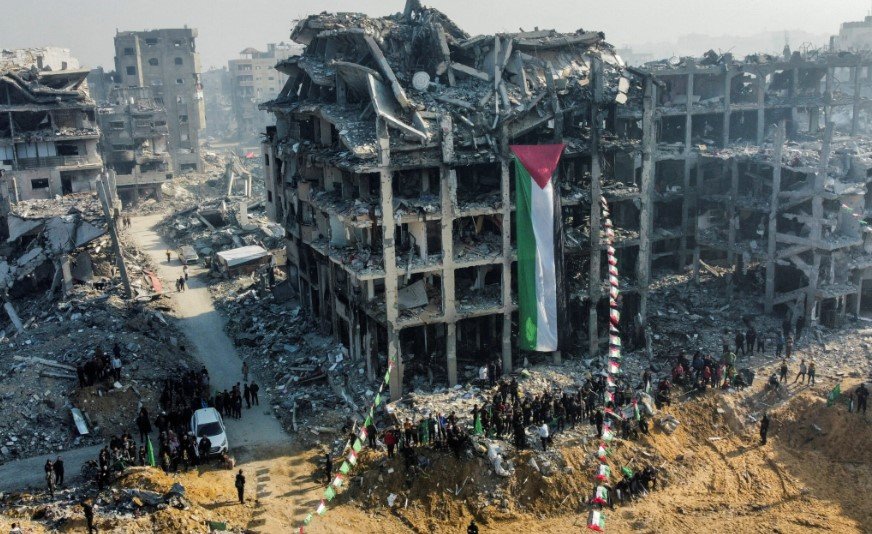In the wake of a fragile ceasefire in Gaza, Egypt and Jordan are stepping up as key players in reconstruction efforts and countering Hamas influence. As of November 2025, both nations are pushing plans to rebuild the war-torn area while ensuring long-term stability against militant groups.
Egypt’s Bold Plan for Gaza Recovery
Egypt has unveiled a major proposal to rebuild Gaza, focusing on infrastructure and security. This plan, endorsed by the Arab League earlier this year, aims to create a stable environment free from Hamas control.
The initiative includes building a commercial harbor, airport, and tech hub. It calls for a technocratic committee to govern Gaza, backed by Palestinian factions like Fatah. Egypt is training thousands of Palestinian Authority forces for security roles, working closely with Jordan.

This move comes amid stalled talks on a $70 billion reconstruction fund. Saudi Arabia and the UAE hesitate without Hamas disarmament guarantees. Egypt positions itself as a custodian of Palestinian affairs, searching for hostage bodies and shaping the postwar landscape.
Recent reports show Egypt rejecting pressure to accept refugees, prioritizing national interests. The plan rejects ideas like ethnic cleansing, offering an alternative to other international proposals.
Jordan’s Role in Security and Partnership
Jordan joins Egypt in training Palestinian forces for Gaza’s internal policing. This partnership targets chaos from groups like Hamas and the Muslim Brotherhood.
Jordan’s involvement includes coordination on security and reconstruction. Leaders from both countries met in Riyadh to discuss these efforts, promising aid and stability.
- Joint training programs for Palestinian security personnel.
- Focus on disarming militants as a prerequisite for funding.
- Emphasis on unifying Palestinian groups under a reformed authority.
Jordan faces economic pressures but remains a natural ally against extremism. Its peace treaty with Israel strengthens its position in regional talks.
Experts note Jordan’s role in preventing spillover from Gaza conflicts. The kingdom hosts many Palestinian refugees and seeks to avoid further instability.
Challenges in Rebuilding Efforts
Reconstruction faces hurdles like funding delays and political tensions. Negotiations are stuck, with Arab powers demanding clear post-war frameworks.
Hamas’s future is a sticking point. Some plans insist on its full demilitarization for aid to flow. The ceasefire, achieved in Sharm El-Sheikh last month, sets milestones but leaves governance questions open.
| Challenge | Description | Potential Solution |
|---|---|---|
| Funding Shortfalls | UAE and Saudi Arabia withhold $53-70 billion without Hamas disarmament. | Link aid to verifiable security reforms. |
| Political Divisions | Rivalries between Hamas and Fatah complicate unity. | Technocratic committees backed by Egypt and Jordan. |
| Infrastructure Damage | Widespread destruction from the 15-month war. | Phased rebuilding with international oversight. |
| Security Risks | Potential return of militant control. | Trained PA forces and multinational monitoring. |
These issues highlight the need for balanced approaches. Without addressing them, rebuilding could falter.
International players like Qatar and Turkey are discussed, but Egypt and Jordan offer grounded, local solutions. Their experience in past conflicts makes them reliable partners.
Broader Regional Impact
The partnership extends beyond Gaza, countering broader threats from groups like the Muslim Brotherhood. Egypt and Jordan share borders and histories that make them invested in peace.
Recent summits show Arab nations backing these efforts. A new Marshall Plan-like initiative requires ceasefires and demilitarization for success.
This aligns with trends in Middle East diplomacy. Saudi Arabia calls for Hamas disarmament, while Egypt leads on Palestinian consensus.
Public sentiment on social media reflects hope mixed with skepticism. Posts highlight panic over alternative plans and praise for Arab-led rebuilding.
Future Outlook for Gaza Stability
Looking ahead, Egypt and Jordan could lead a multinational force for Gaza. Their plans promise economic growth and security, aiming for completion by 2030.
Success depends on cooperation from Israel, the Palestinian Authority, and donors. A unified approach might finally bring lasting peace.
As talks continue, these overlooked partners prove essential. Their grounded strategies contrast with riskier options from distant powers.
What do you think about Egypt and Jordan’s roles in Gaza? Share your thoughts in the comments and spread this article to spark discussion.
